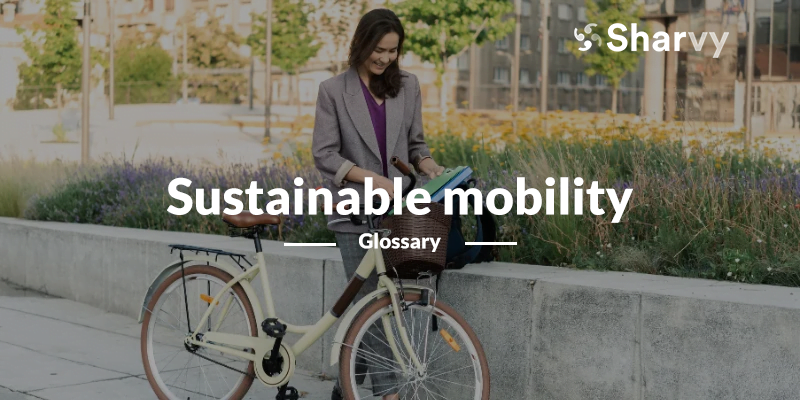What is sustainable mobility? – Definition
Sustainable mobility is based on the study and implementation of quiet and non-polluting means of travel, to limit the impact on the environment. This means democratizing and using :
- Soft means of transport (like : cycling, walking).
- Shared mobility means of transport (like : carpooling, public transport, etc).
So-called “soft” means of transport include scooters, hoverboards, skateboards, etc.
While sustainable mobility calls into question our use of cars, it does not aim to banish them entirely from our lives. Instead, look at the alternatives and see which are best suited to specific journeys.
But, home-work commutes are the 1st journeys on which we need to take action. This is because, historically, employees have favored pragmatic mobility for their daily home-work commutes. Over 79% of them use the car to get to work. Financial savings and comfort remain the primary factors in their choice, to the detriment in particular of reducing the ecological impact.
This is why employers have an essential role to play and must act to deploy more environmentally friendly transport solutions for employees without cutting back on their comfort and ease of travel. So, although there is still a long way to go, there has been a general increase in awareness and action in recent years!
Why promote sustainable mobility in the company?
Sustainable mobility has its share of benefits, particularly for the companies. By encouraging employees to reduce car use, companies can take action on several fronts :
- Social : they improve employees’ Quality of Life and Working Conditions (daily physical activity, less fatigue, less stress, etc) while increasing their productivity.
- Environmental : by facilitating the use of soft mobility, they help to reduce CO2 emissions. They also help to improve the urban environment (by reducing noise and odor pollution).
- Economic : by encouraging the use of environmentally friendly forms of transport, some companies can reduce their employee transport costs by up to 30% (lower parking, company car maintenance, and fuel costs).
Beyond this, companies committed to sustainable mobility strengthen their employer brand. They project an image of a socially responsible company that cares about the environment but is also concerned about the health and well-being of its employees. This can attract talent and customers.
Company car parks : a lever for improving sustainable mobility?
You might think that improving the parking policy in a company car park would encourage people to take their cars, but in fact, the opposite is true. Good car park management ultimately opens the door to developing other forms of mobility.
If we take a step back, the reason is apparent : employers can create a “smart parking” by taking advantage of digital technologies. The management possibilities are endless! They can devise rules for good use, systems for prioritizing and sharing spaces between users, fairness rules, etc.
For example, they can reverse the trend towards self-driving cars by establishing preferential rules for access to the company car park by guaranteeing a space for car-poolers. By doing this, they encourage employees to change their behavior for the long term!
In the same way, thanks to smart parking, they can inform users in real-time of the saturation of a car park and the availability of parking spaces (for people with reduced mobility, two-wheelers, with a recharging point, etc).
This is an essential point because today, the time it takes to find a parking space represents as much wasted time as the pollution emitted by the vehicle. As a result, motorists who know in advance that there is no parking available on a particular day can choose another means of transport if they can do so : cycling, public transport, car-sharing, etc.
And that’s not all! Employers can also turn the car park into a real mobility hub. For example, by installing :
- A secure cycle park and a fleet of company bicycles.
- Car park spaces equipped with charging points for electric vehicles.
- Charging points for electrically assisted bicycles.
- A room with a few tools (repair and service tools).
- Lockers for safely storing personal items (helmets, shapehearts, etc).

